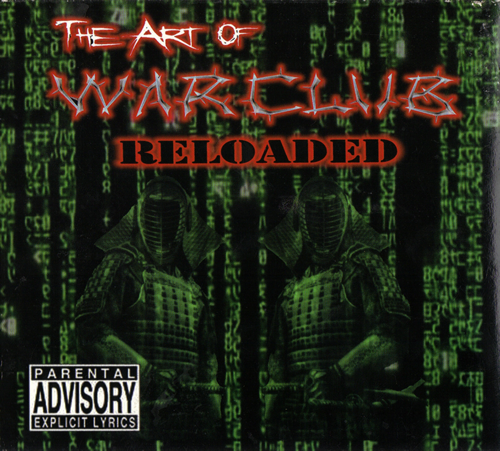Malcolm X (1925-1965), later known also by the
religious name El-Hajj Malik El-Shabbazz, African American activist.
His militant views that Western nations were inherently racist and that
black people must join together to build their own society and value
system had an important influence on black nationalist and black separatist
movements of the 1950s and 1960s. His beliefs gained a broader audience
through The Autobiography of Malcolm X (1965), published after his assassination.
Malcolm X was born Malcolm Little in Omaha, Nebraska. He was the son of Earl Little, a Baptist preacher, and his wife, Louise. The family moved to Lansing, Michigan, shortly after Malcolm's birth. Earl Little was an outspoken promoter of social and economic independence for blacks and a supporter of the "Back to Africa" movement of black nationalist leader Marcus Garvey. In 1931 Earl Little was killed, probably murdered by white terrorists because of his political and social activism.
His father's death had a disastrous effect on Malcolm and his family.
His mother suffered a nervous breakdown, and the welfare department
took the eight little children away from her. Malcolm was placed in
a foster home and then in reform school. In 1941 he went to live with
his half-sister in Boston. There he soon entered the fringes of the
underworld, and at the age of 17 he moved to Harlem in New York City.
Known as Detroit Red, Malcolm turned to a life of crime, including drug
dealing and armed robbery. When he was 20, Malcolm received a sentence
of ten years in prison for burglary.
While in prison, Malcolm read widely and developed an interest in the
Nation of Islam, a black nationalist religious movement whose members
were known as Black Muslims. Malcolm studied the teachings of the leader
of the Black Muslims, Elijah Muhammad, who advocated an independent
black state. The Nation of Islam was based on a theology adapted from
several models: traditional Islamic teachings, Marcus Garvey's principles
of black nationalism, and economic self-help programs that addressed
the needs of African Americans living in urban ghettoes.
Unlike traditional Islam, which rejects all forms of racism, the Nation
of Islam declared that whites were the "devil by nature,"
and that God was black. However, the Black Muslims predicted that in
the near future a great war would take place in which whites would be
destroyed and black people would rule the world through the benevolence
of Allah, their creator. To prepare for this new order, the Nation of
Islam stressed personal self-restraint, opposed the use of drugs and
alcohol, and organized economic self-help enterprises that eventually
included farms, food stores, restaurants, and small businesses. The
Black Muslims recruited heavily among the poorest of urban blacks and
in prisons, where Malcolm Little was converted to the faith
When Malcolm was released from prison in 1952, he went to Detroit, Michigan,
and joined the Nation of Islam temple in that city. He dropped his last
name-considered a "slave name" by Black Muslims-and became
Malcolm X. In 1958 he married Betty Sanders, later known as Betty Shabazz,
and they eventually had six daughters.
Malcolm X rose rapidly in the Nation of Islam organization as a minister
and recruiter of new members. Elijah Muhammed appointed him as the chief
minister of Harlem's main temple in June 1954. Malcolm X also helped
establish the movement's main information and propaganda newspaper,
Muhammad Speaks. Within five years, Malcolm X had become a more prominent
spokesperson for the Nation of Islam than Elijah Muhammad.
During the decade between 1955 and 1965, while most black leaders worked
in the civil rights movement to integrate blacks into mainstream American
life, Malcolm X preached the opposite. He maintained that Western culture,
and the Judeo-Christian religious traditions on which it is based, was
inherently racist. Constantly attacking mainstream civil rights leader
Martin Luther King, Jr., Malcolm X declared that nonviolence was the
"philosophy of the fool." In response to King's famous "I
Have a Dream" speech, Malcolm X quipped, "While King was having
a dream, the rest of us Negroes are having a nightmare." Malcolm
X believed that black people must develop their own society and ethical
values, including the self-help, community-based enterprises that the
Black Muslims supported. He also thought that African Americans should
reject integration or cooperation with whites.
His fiery style and natural speaking ability made Malcolm X a popular
public speaker, but his growing reputation caused tension with Elijah
Muhammad and other Black Muslim leaders. While Muhammad strenuously
tried to maintain the Nation of Islam as a religious self-help movement,
Malcolm was increasingly moving towards a political response to racism.
He called for a "black revolution," which he declared would
be "bloody" and would renounce any sort of "compromise"
with whites. In this way Malcolm X rejected the conservative values
of the Nation of Islam in favor of a more radical, revolutionary approach
to social change. Malcolm X also had come to reject some of the tenets
of the Nation of Islam, including Elijah Muhammad's theory that the
white race was created by a dissident "mad scientist" named
Yakub.
In 1963 Elijah Muhammad silenced Malcolm X for his statement that the
assassination of U.S. president John F. Kennedy had represented "the
chickens coming home to roost"-a repayment for America's continuing
failure to end racial cruelty and hatred. This comment, often taken
out of context, was not meant to be disrespectful to the late president,
although in fact, Malcolm X had little respect or admiration for any
white leaders. Rather, he was trying to make the point that the violent
treatment of blacks had now come back to the "roost" with
violence against a white president. However, the insensitive nature
of the statement reflected poorly on the Black Muslims and led Muhammad
to silence Malcolm X. In essence, Muhammad told his most prominent follower
that he could not speak in public and remain within the Black Muslim
organization.
Rather than accept this silencing, Malcolm X publicly broke with the
Nation of Islam on March 8, 1964, and formed his own movement, the Muslim
Mosque, Inc. Even before the split, however, Malcolm X had already begun
to part ways with the Black Muslims because he felt stifled by the authoritarian
organization of the Nation of Islam. He was ready to be his own leader,
rather than to follow the dictates of Muhammad or anyone else.
In 1964, shortly after his break with Elijah Muhammad, Malcolm X made
a pilgrimage to Mecca, the holy Muslim city in Saudi Arabia that was
the birthplace of the founder of Islam. He also visited several other
African and Arab nations. While on this trip, he wrote a highly publicized
letter expressing his own faith as a follower of traditional Islam and
renouncing the Black Muslim teaching that all white men are evil. He
became an orthodox Sunni Muslim, or Sunnite. He also adopted a religious
name, El-Hajj Malik El-Shabazz, meaning the Malcolm (or Malik) who is
from the tribe or family of Shabazz and has made the Hajj, or pilgrimage,
to Mecca. However, most people in the United States continued to call
him Malcolm X, a name he did not reject.
When Malcolm X returned to America, he held the first rally for a black
nationalist group he had founded, the Organization of Afro-American
Unity (OAAU). This group, which had no direct religious ties, advocated
racial solidarity and strove to unify all black organizations fighting
white racism. At the same time, Malcolm X renounced his previous racism
against whites, declaring that in Mecca he had realized that people
of all colors were children of Allah. In contrast to his earlier views,
he encouraged blacks to vote, to participate in the political system,
and to work with each other and with sympathetic whites and Hispanics
for an end to racial discrimination. As he told a group of African leaders,
the problem of race was "not a Negro problem, nor an American problem.
This is a world problem, a problem of humanity."
Malcolm X also began collaborating with writer Alex Haley on an account
of his life. In the manuscript, later published as The Autobiography
of Malcolm X (1965), he predicted that he might not live to see the
book published. That prophecy became a reality on February 21, 1965.
Malcolm X was assassinated while addressing an OAAU rally in New York
City. At least two of the three men later convicted of the crime were
connected with the Nation of Islam. Many scholars and supporters of
Malcolm X have speculated that leaders or individuals within the Nation
of Islam-including Elijah Muhammad-considered him a danger to their
own movement and could not forgive him for rejecting their authority
and organizing a rival movement. These observers believe that the Nation
of Islam leadership may have ordered the assassination of Malcolm X.
Malcolm X left a very complicated legacy. His autobiography, which was
published after his death, profoundly affected many blacks and whites
who read it. Readers were especially impressed by his personal journey
from petty criminal to spiritual leader. They also admired how Malcolm
X transformed himself intellectually from a preacher of racial hatred
to an advocate of interracial and international brotherhood. Malcolm
X significantly elevated black consciousness in the United States. He
asserted in the most forceful terms that "black is beautiful,"
and that African Americans must take control of their own destiny.
Many have tried to lay claim to the legacy of Malcolm X, just as they
have celebrated other heroes who have died. The Socialist Workers' Party,
which follows the teachings of Marxist political thinker Leon Trotsky,
has long viewed Malcolm X as an icon or symbol. So, too, did the militant
political group the Black Panther Party and various other radical organizations
in the late 1960s and 1970s. Some of these groups identified with his
statements urging violence while others focused on his support of black
nationalism. More recently Hollywood has made Malcolm X a subject of
mass-media attention, bombarding the public with T-shirts, baseball
caps, and posters that have commercialized his image.
In one sense, some of these conflicting claims on his memory are legitimate
because Malcolm X did undergo a radical transformation during his lifetime.
He was always a radical and sometimes an advocate of violence, although
he became a man of peace. He rejected voting and political action during
his early years, but later embraced them. As a member of the Nation
of Islam, he called whites the devil, but as a Sunni Muslim he embraced
all people as brothers. Always charismatic and witty, his words and
speeches provided quotes for people with many different social and political
goals. His most enduring message remains one of black self-respect and
self-help, combined with his uncompromising rejection of racism.
War Club - Riotstage


Hear more War Cub music @
Mexica Uprising MySpace
Add Mexica Uprising to your
friends list to get updates, news,
enter contests, and get free revolutionary contraband.
Featured Link:
"If Brown (vs. Board of Education) was just about letting Black people into a White school, well we don’t care about that anymore. We don’t necessarily want to go to White schools. What we want to do is teach ourselves, teach our children the way we have of teaching. We don’t want to drink from a White water fountain...We don’t need a White water fountain. So the whole issue of segregation and the whole issue of the Civil Rights Movement is all within the box of White culture and White supremacy. We should not still be fighting for what they have. We are not interested in what they have because we have so much more and because the world is so much larger. And ultimately the White way, the American way, the neo liberal, capitalist way of life will eventually lead to our own destruction. And so it isn’t about an argument of joining neo liberalism, it’s about us being able, as human beings, to surpass the barrier."
- Marcos Aguilar (Principal, Academia Semillas del Pueblo)
![]()
Grow
a Mexica Garden
12/31/06
The
Aztecs: Their History,
Manners, and Customs by:
Lucien Biart
12/29/06
6 New Music Videos
Including
Dead Prez, Quinto Sol,
and Warclub
12/29/06
Kalpulli
"Mixcoatl" mp3 album
download Now Available
for Purchase
9/12/06
Che/Marcos/Zapata
T-shirt
Now Available for Purchase
7/31/06
M-1
"Til We Get There"
Music Video
7/31/06
Native
Guns "Champion"
Live Video
7/31/06
Sub-Comandante
Marcos
T-shirt Now Available for Purchase
7/26/06
11 New Music Videos Including
Dead Prez, Native Guns,
El Vuh, and Olmeca
7/10/06
Howard Zinn's
A People's
History of the United States
7/02/06
The
Tamil Tigers
7/02/06
The Sandinista
Revolution
6/26/06
The Cuban
Revolution
6/26/06
Che Guevara/Emiliano
Zapata
T-shirts Now in Stock
6/25/06
Free Online Books
4/01/06
"Decolonize"
and "Sub-verses"
from Aztlan Underground
Now Available for Purchase
4/01/06
Zapatista
"Ya Basta" T-shirt
Now Available for Purchase
3/19/06
An
Analytical Dictionary
of Nahuatl by Frances
Kartutten Download
3/19/06
Tattoo
Designs
2/8/06


